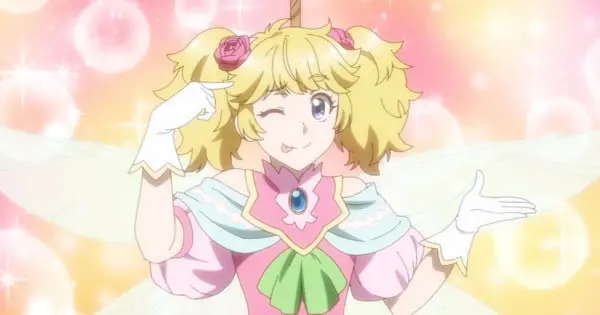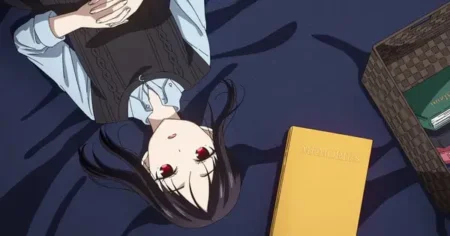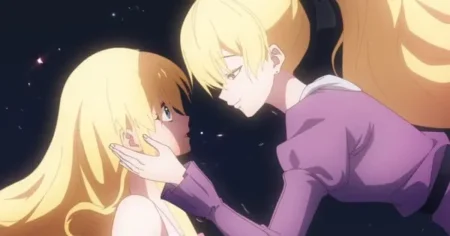The anime series “From Bureaucrat to Villainess: Dad’s Been Reincarnated!” concluded its first season recently, leaving viewers with a mix of satisfaction and anticipation for a potential second season. This article delves into a comprehensive review of the season finale, exploring key plot points, character developments, thematic elements, and overall reception.
Synopsis of the Series
“From Bureaucrat to Villainess: Dad’s Been Reincarnated!” (Japanese title: Akuyaku Reijō Tensei Oji-san) is a comedy, fantasy, and slice-of-life anime series that premiered on January 9, 2025. The story revolves around Kenzaburou Tondabayashi, a 52-year-old diligent public employee, who dies in a traffic accident and is reincarnated as Grace Auvergne, the villainess in his daughter’s favorite otome game, “Magical Academy: Love & Beast.”
Unfamiliar with the otome genre but possessing the memories and knowledge of Grace, Kenzaburou tries to act like a villainess. However, his innate politeness, years of experience as a civil servant, and fatherly instincts lead him to befriend the heroine, Anna Doll, and inadvertently charm the male characters, disrupting the game’s original storyline. The series explores themes of reincarnation (isekai), family, gender-bending, and otaku culture, while parodying the villainess trope common in many isekai stories.
Season Finale Overview
The season finale, episode 12, culminates in the Student Council Campus Festival Play, a cross-dressing performance written by Grace’s mysterious mother, Jacqueline Auvergne, thirty years prior. Grace, still struggling with her inability to “speak commoner” due to Kenzaburo’s “Elegance Cheat,” is anxious about playing a dual role as both Prince and Peasant. Fairy-Lucas’s ad-libbing and Jacqueline’s hidden influence help the play proceed smoothly.
However, Kenzaburo becomes preoccupied with Jacqueline’s purpose in writing the play, which seems to mirror the central premise of the series: a noble and a peasant swapping bodies and minds. This meta-narrative element hints at a deeper mystery surrounding Grace’s reincarnation and Jacqueline’s involvement. A scene involving Grace’s father and Anna’s mother suggests they share a secret, further intensifying the intrigue.
Despite Kenzaburo’s attempts to push Anna towards the male characters, she remains drawn to Grace. The finale concludes with a fireworks display where Anna, despite searching for Grace, ends up watching the fireworks with all the male characters, inadvertently raising affection points for Grace.
Key Elements and Themes in the Finale
Meta-Narrative Commentary
The play within the episode functions as a commentary on the show’s premise. The concept of a noble and a peasant switching bodies is a clear parallel to Kenzaburo’s reincarnation as Grace. Jacqueline’s role as the playwright, and the seemingly tailor-made roles for the current actors, suggest a deeper understanding and manipulation of the events unfolding. This meta-narrative element adds a layer of complexity to the story, inviting viewers to question the nature of reality within the anime.
The Mystery of Jacqueline Auvergne
Jacqueline Auvergne is a central figure in the finale, despite her limited screen time. Her motives for writing the play, her connection to Anna’s mother, and her potential knowledge of Grace’s situation remain largely unresolved, creating significant intrigue and fueling speculation about a possible second season. Some viewers believe that Grace’s mind might be trapped in Kenzaburo’s comatose body, and Jacqueline is aware of this.
The Unintended Consequences of Kenzaburo’s Actions
Throughout the series, Kenzaburo’s attempts to act as a villainess backfire, leading to unexpected consequences. In the finale, his efforts to steer Anna towards the male characters fail as she continues to be drawn to Grace. This recurring theme highlights the idea that genuine kindness and good intentions can have a more significant impact than calculated villainy. It also subverts the typical villainess narrative, where the protagonist actively tries to avoid a bad ending.
The Importance of Family
The anime emphasizes the importance of family, both in Kenzaburo’s past life and in his new life as Grace. His interactions with Anna, whom he views as a daughter figure, demonstrate his caring nature and influence her personal growth. The mystery surrounding Jacqueline also touches on familial bonds and the lengths to which parents will go to protect their children.
Elegance Cheat
Kenzaburo’s innate skill, “Elegance Cheat,” is a recurring comedic element throughout the series, exemplified in the finale. This skill automatically translates his attempts to “speak commoner” into elegant, upper-class language, highlighting the clash between his former life as a bureaucrat and his current role as a noblewoman. This also prevents Kenzaburo from effectively acting like a villainess, contributing to the comedic subversion of the otome game narrative.
Character Developments
Grace Auvergne (Kenzaburo Tondabayashi)
Grace continues to struggle with balancing her desire to act like a villainess with her innate kindness and fatherly instincts. Her anxiety over speaking “commoner” in the play highlights her internal conflict and the influence of the “Elegance Cheat.” Despite her efforts, she continues to attract the attention of the male characters and deepen her bond with Anna.
Anna Doll
Anna’s character develops further as she grapples with her feelings for Grace and her role in the otome game. Her search for Grace during the fireworks display suggests a growing affection and dependence on her. The finale leaves her romantic inclinations ambiguous, hinting at a possible subversion of the game’s original romantic routes.
Supporting Characters
The supporting characters, including Lucas, Richard, and Auguste, play supporting roles in the finale. Lucas’s ad-libbing saves Grace during the play, while Richard and Auguste continue their rivalry. Anna’s mother and Grace’s father are presented with a mysterious interaction, hinting at their deeper involvement.
Reception and Reviews
The season finale of “From Bureaucrat to Villainess: Dad’s Been Reincarnated!” has garnered mixed reactions. Many viewers appreciated the humor, wholesome vibe, and unique premise of the series. Some reviewers praised the meta-narrative elements and the intriguing mystery surrounding Jacqueline Auvergne.
However, some criticisms arose regarding the lack of narrative resolution in the finale. Several questions remain unanswered, including the reason for Kenzaburo’s summoning to the game world and the true nature of Jacqueline’s role. Some viewers expressed disappointment that the romantic plotlines were not further developed. Despite these criticisms, the finale left many viewers eager for a potential second season to resolve the outstanding mysteries and continue the story.
Newbie Jun, a reviewer, gave the series an 8/10, citing its healing nature and humor but noting the density of the main character. Another review expressed concerns that the season wrapped up without any narrative resolution.
Potential for a Second Season
The open-ended nature of the season finale strongly suggests the possibility of a second season. The unresolved mysteries surrounding Jacqueline, the ambiguous romantic plotlines, and the potential for further disruption of the otome game’s storyline provide ample material for future episodes. Whether a second season will be produced remains to be seen, but the positive reception and lingering questions from the first season create a strong demand for its continuation.
Overall Assessment
“From Bureaucrat to Villainess: Dad’s Been Reincarnated!” is a unique and entertaining anime series that successfully blends comedy, fantasy, and slice-of-life elements. The premise of a middle-aged bureaucrat reincarnated as a villainess subverts the typical isekai tropes and provides a fresh perspective on the genre. The series’ strengths lie in its humor, wholesome characters, and intriguing mysteries. While the season finale leaves some questions unanswered, it sets the stage for a potential second season and leaves viewers eagerly anticipating what’s to come.
Final Thoughts
The first season of “From Bureaucrat to Villainess: Dad’s Been Reincarnated!” delivers a compelling and hilarious take on the villainess isekai genre. By focusing on character interactions and comedic situations, the series sets itself apart from other anime in the same category. The ending leaves viewers wanting more, as many mysteries are left unsolved. If a second season is produced, it will likely explore these mysteries further and delve deeper into the world of “Magical Academy: Love & Beast.”









